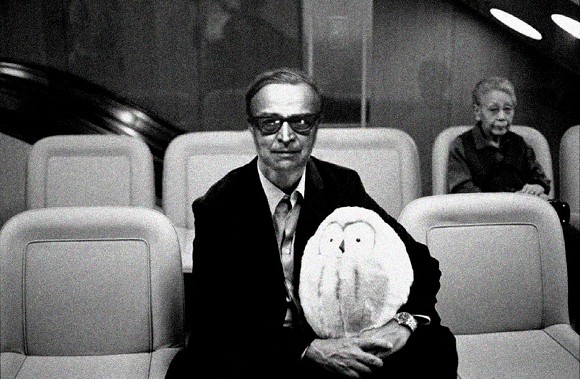Lost in Translation
Is history at its end? Has capitalist democracy prevailed? Alexandre Kojève, whose lectures on Hegel influenced a generation of French thinkers, was convinced it had, until he travelled to Japan. The doubts he felt there eventually developed into a long footnote accompanying his introduction to Hegel's work, which counters his earlier thesis on the end of history. He recognized a democratic snobbery in Japan, which he could not easily reconcile with his former system: the birth of post-history.
40 years later, Daniel Tyradellis believes, Sophia Coppola's Lost in Translation (2003) constitutes a footnote on a footnote. Even though it won the Golden Globe for "Best Comedy" in 2004, Tyradellis argues that it is, in fact, a return to tragedy. In his philosophical filmic analysis, he asks: who is the translator here, and into what? What is, perhaps, lost in the process? Were Kojève's early works on point? Who is explaining the world to whom, in this scenario? And what does Bill Murray whisper in Scarlett Johansson's ear as they part?


